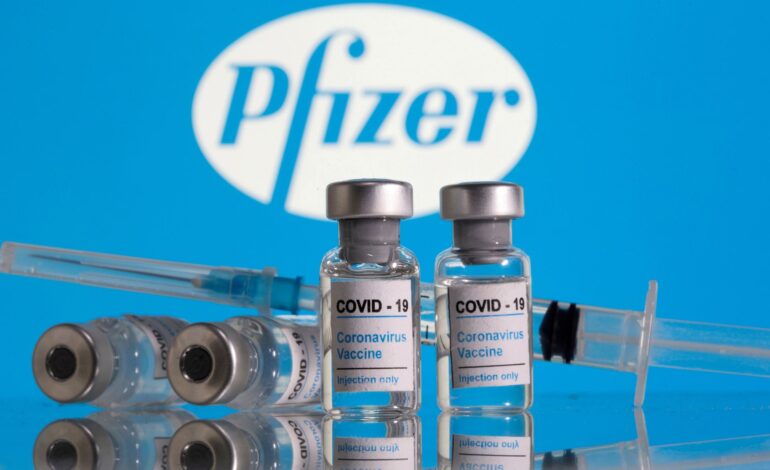The drugmaker Pfizer said on Thursday it will ask the U.S. government for the approval of a booster dose of its COVID-19 vaccine within the next month, as fears among experts grow around the spread of the highly contagious Delta variant.
The request with the U.S. Food and Drug Administration (FDA) is based on evidence of greater risk of reinfection six months after inoculation and the spread of the highly contagious Delta variant.
“The Pfizer vaccine is highly active against the Delta variant,” said Pfizer Chief Scientific Officer Mikael Dolsten in an interview. But after six months, he said, “there likely is the risk of reinfection as antibodies, as predicted, wane.”
The evidence for the lowering of effectiveness comes from studies in Israel. There, a dip was reported in the vaccine’s effectiveness, mostly due to infections in people who had been vaccinated in January or February. The country’s health ministry said vaccine effectiveness in preventing both infection and symptomatic disease fell to 64 percent in June.
Pfizer’s own data from the U.S. showed an erosion of the vaccine efficacy to the mid-80s after six months against the variants that were circulating in the spring. The vaccine originally showed 95 percent efficacy in preventing symptomatic COVID-19 in a clinical trial the companies ran last year.
The company says early data from its own studies show that a third booster dose generates antibody levels that are five to 10-fold higher than after the second dose, suggesting that a third dose will offer promising protection
Dolsten stressed that data from Israel and Britain suggests that even with waning antibody levels, the vaccine remains around 95 percent effective against severe disease.
The company says early data from its own studies show that a third booster dose generates antibody levels that are five to 10-fold higher than after the second dose, suggesting that a third dose will offer promising protection.
Dolsten said he believes that booster shots are particularly important in older age groups.
Dr. Eric Topol, a professor of molecular medicine and director of the Scripps Research Translational Institute in La Jolla, California, told Reuters that basing the decision on waning antibody protection ignores the role of important other parts of the immune response, including memory B cells, which can make antibodies on demand when challenged by the virus.
“You need better studies to be able to assert that,” Topol said. “It isn’t just neutralizing antibodies.”
The FDA declined a request by Reuters to comment on Pfizer’s plans. Even with an approval, the booster would still need to be reviewed and recommended by advisers to the U.S. Centers for Disease Control and Prevention (CDC).
Because boosters will drive increasing demand for vaccines as much of the world is still unvaccinated, Dolsten said Pfizer is looking at ways to boost production. It is already targeting production of 3 billion doses this year and 4 billion doses next year. Dolsten declined to give a forecast of exactly how many more doses the company could add, but said, “we can step up billion after billion in ’22.”
Dolsten said that though company does not believe its current version of the vaccine will need to be replaced in order to combat the variant, it is designing a new version targeting the Delta variant.
Pfizer plans to launch soon a placebo-controlled efficacy trial of the booster with 10,000 participants, but the study will not be completed ahead of the company’s filing with the FDA.
— Wire and staff






Leave a Reply